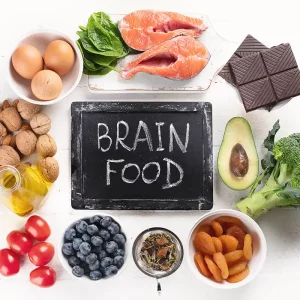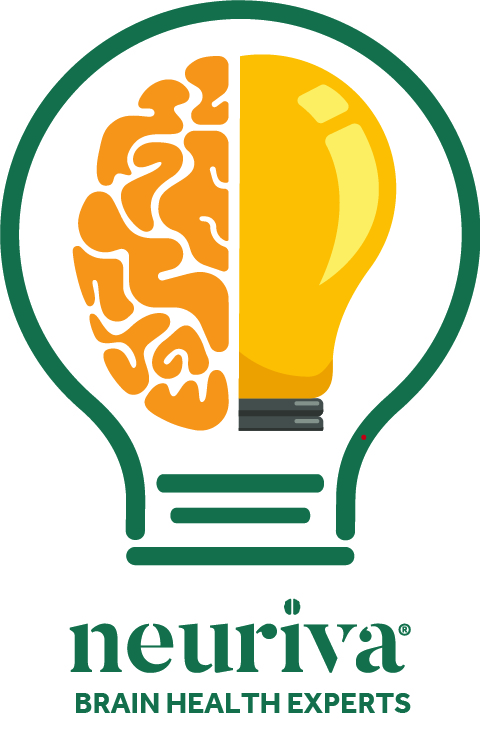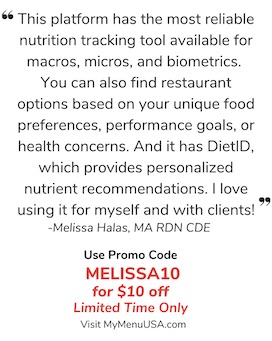
It’s time to up your brain game and choose foods that can improve memory and concentration for achieving better focus this fall.
As the most complex part of the human body, prioritizing your brain health is essential to overall well-being. So much of what we do on a daily basis influences our brain’s function. Sleep. Move. Socialize. Eat. Learn. Supplement. You name it!
How to Foster Positive Brain Habits
With summer coming to a close, most workplaces are looking to kick it into gear and improve productivity. However, going into overdrive can lead to increased demands on the mind and body. Instead, foster positive brain habits by creating a plan for a much-needed mental reboot. Consider integrating word or number puzzles into your routine to help you build cognitive skills and track your focus and concentration over time.
Benefits of Improved Focus
Improving your focus can help you become a soaring success both in and outside the workplace. It may help you complete daily tasks more efficiently and effectively, ultimately freeing up more time for what you love most.
Better focus may also be the missing link to mastering that beloved golf swing, salsa move, or yoga practice. So, don’t stress—instead, refresh! As a first step to ridding the summer brain fog and equipping the mind to handle all of life’s adventures, prioritize a plant-based lifestyle with brain food snacks and meals! These phytonutrient-rich foods have brain-boosting powers packed in every bite.
Brain Foods with a Plant-Based Focus
Getting plant-powered is all the rage—and for good reason! Embracing your inner veg-head can potentially lead to:
- reduced inflammation and oxidative stress
- improved cardiovascular health
- decreased risk of certain cancers.
Not to mention, it’s an environmentally sustainable way to improve cognitive function! Cognition includes the ability to learn, think, reason, remember, problem solve, make decisions, and pay attention. Research shows that more than half of consumers prioritize food product sustainability. So, lend Mother Nature a helping hand by enjoying all the nutrient-dense goods she has to offer (1)!
But meat enthusiasts, romaine calm! Adopting a more plant-forward diet doesn’t mean you must become vegan or vegetarian. Discover how to reap the brain benefits of boosting tasty plant-based foods that improve memory and concentration. The trick is to set realistic, achievable, and sustainable goals that fit your lifestyle.
Brain Foods as Fuel
Plant the seed to support cognitive performance by embracing a plant-forward lifestyle. Emerging evidence suggests an association between dietary habits and cognitive performance. Specifically, a Mediterranean-style diet rich in fish, whole grains, green leafy vegetables, olives, and nuts may help maintain brain health. When combined with elements of the Dietary Approach to Stop Hypertension (DASH) Diet, the Mediterranean-DASH Diet Intervention for Neurodegenerative Delay (MIND diet) has been shown to support the health of the aging brain (2).
The MIND diet includes foods rich in vitamins, carotenoids, and flavonoids that are believed to protect the brain by reducing oxidative stress and inflammation and limiting the intake of animal and high saturated fat foods (2). The effects of the MIND diet on cognition showed greater results than either the Mediterranean or the DASH diet alone (3). As the saying goes, “we are what we eat.” So, prioritize your brain health by embracing these types of brain food snacks and meals!
Brain Foods for Memory
Consuming a variety of plant-based, colorful foods offers a number of health benefits due to the unique phytonutrients they contain. Early-stage research has found that phytonutrients may help improve interneuron signaling (neuron-to-neuron communication), helping to decrease the risk of neurodegenerative disease (4). So, eating a diverse array of plants can help keep your mind alert and your body feeling its best.
However, if you are feeling especially motivated to eat for your brain health, certain foods are worth incorporating into your diet.
Blueberries and Memory
For example, blueberries are very high in antioxidants and a great food for memory. A recent research review shows that regular blueberry consumption has demonstrated to increase Brain-Derived-Neurotrophic-Factor (BDNF), helping to improve cognition (5). BDNF is a neuroprotein that stimulates and manages the process of neurogenesis, which is how new neurons are formed in the brain. It’s involved in maintaining the health of existing brain cells and supporting overall cognitive function, including memory and learning (6,7,8).
Additionally, blueberries also contain phytonutrients that help mitigate UV/UVB damage all while improving memory (9,10). It’s no wonder blueberries are considered a brain food snack and superfood!
Beets and Memory
But if you are worried about missing a beat at work or in your daily routine, embrace beets for brain focus! Research shows that beet juice increases blood flow to brain regions involved in executive functioning in seniors (11,12). The nitric oxide in beets is good for your heart and brain (13,14).
While it may not be as commonly noted as a “superfood,” not all heroes wear capes. This radiantly red food is packed with phytonutrients!
Brain Healthy Foods
Feel good with flavonoid foods! Flavonoids are a type of phytonutrient that has been shown to hinder neuroinflammation and strengthen cognitive performance in human clinical trials and in vivo experiments (15). Apples, berries, leafy greens, and cacao powder all contain flavanols, providing a tasty way to protect the brain (16).
- Allow your brain to catch up with catechins! This notable phytonutrient found in apples, berries, grapes, and teas helps protect and preserve brain cell structure (17-19).
- Also, try to consume more foods that include resveratrol, a type of polyphenol found in red grapes, blueberries, and peanuts that has been shown to provide cardiovascular, cognitive, and anti-inflammatory benefits (19,20).
- The next time you’re hungry between meals, reach for brain food snacks, like peanuts, grapes, or an apple! Resveratrol may also improve memory in older adults (21).
- Additionally, anthocyanins found in black rice, blueberries, cherries, red cabbage, and radishes help boost cognitive function (16).
Plant-Protein Swaps
To get started with a brain-healthy lifestyle, substitute a plant-based protein alternatives like tofu or tempeh for an animal protein serving or two. Plant-based proteins offer disease-fighting phytonutrients. So, prioritizing their consumption can help improve overall health and well-being without needing to completely eliminate animal products from your routine. After all, life is about balance!
Setting Realistic Expectations
Eating a plant-based diet benefits your brain, waistline, AND the planet (22-24). But drastic changes are far from sustainable. It’s all about making small yet significant changes that yield big results. In other words, don’t expect your “steak and potatoes” partner to substitute for a kale salad any time soon. But how about adding chopped greens to meatballs, beans to turkey chili, or peppers to an omelet? Slow and steady wins the race.
The easiest way to embrace a plant-forward lifestyle is to revolutionize foods your household already knows and loves. Reinvent your Sunday meat sauce by substituting it for a marinara with textured vegetable proteins or ground mushrooms. It has a similar texture and taste yet packs a fibrous and phytonutrient punch. Still too adventurous? How about half and half? Once familiarity sets in, experiment with spaghetti squash. Once cooked, this yellow squash turns into noodle-like threads that can be eaten just like spaghetti.
Find a starting point that makes sense for your household. For more plant-based substitutions, check out these easy-peasy mealtime ideas.
5 Brain Food Meals
By boosting brain food, you can help support cognition. If you’re transitioning to more plants, include these customizable brain food meals to be 100% plant-based or animal-plant hybrids.
1. Black bean burgers made easy.
Skip the pan-fry and opt for baking on a cookie sheet. Then, simply bake and slice into squares!
Get back-to-back benefits with black beans! These fiber-filled and protein-packed legumes also contain quercetin—a phytonutrient that helps protect your neurons against oxidative stress for better brain health (25).
2. Tofu or lentil-based Sloppy Joes.
Talk about a nostalgic favorite! But, if you don’t want to embrace a full veg meal, mix tofu or lentils with ground turkey.
Tofu contains isoflavone compounds that may help improve learning and memory skills in menopausal women (26). Isoflavones may also help prevent cognitive decline due to their anti-inflammatory and antioxidant properties. Not to mention, it keeps the heart pumping strong. Specifically, soy isoflavones may reduce cardiovascular risk—a health issue associated with dementia. So, help kick cognitive decline to the curb with isoflavones (27)!
3. Tempeh tacos served with slaw
Add in grilled chicken if you’re just starting to go more plant-based.
Say yay for tempeh! This fermented soybean packs a powerful punch of wholesome nutrition. It’s similar to tofu, providing the same benefits from isoflavones. However, this plant-based protein gets bonus points for its fermented nature, which offers neuroprotective properties against neurotoxicity and reactive oxygen species (28). In fact, research shows that high consumption of tempeh is positively associated with improved memory function in older adults (29). Talk about brain-healthy food!
4. Colorful smoothies.
Smoothies make plant-based food diversification easy—and contain foods that improve memory and concentration, such as blueberries (30), strawberries(30,31), apples (32), or walnuts (33).
So, embrace the rainbow for brain-boosting benefits. Don’t forget to include colors such as white, black, or brown! For instance, foods such as cocoa powder and chia seeds are packed with protein, fiber, and phytonutrients (16)! Specifically, cocoa powder is rich in flavanols such as catechin and epicatechin. It helps increase cerebral blood flow and may improve cognitive function while reducing mental fatigue. In other words, chocolate is not only good for the soul but for the brain as well (34)!
6. Nutty breadcrumbs.
Replace refined flour breadcrumbs with a nutty alternative. Experiment with walnut pesto or crushed walnuts mixed with breadcrumbs when breading extra firm tofu or baked chicken.
Walnuts contain antioxidants, including flavonoids, phenolic acid, melatonin, folate, vitamin E, selenium, and others for the brain. They’re a great source of alpha-linolenic acid (ALA)—a plant-based omega-3 fatty acid that helps combat inflammation. Research shows that people who regularly consume walnuts have improved cognitive function and memory compared to those who don’t (35).
5 Brain Food Snacks
Don’t let snack attacks interfere with your focus at work or your goals for living a brain-healthy lifestyle. Instead, include plant-based options that power your productivity and keep your attention between meals. If you don’t like a specific plant food in one form or variety, don’t rule it out without trying it a new way. After all, everyone deserves a second chance! So, if hummus isn’t a fan favorite, experiment with roasted chickpeas!
Here are some other plant-forward brain food snack choices and their benefits.
1. “Nice” cream.
Blend frozen fruit like bananas, cherries, or mangos into “ice-cream” and then top it with frozen pistachios.
Fruits offer fiber, aid in digestive movement, and help control blood sugar. Fiber is fermented by the gut microbiome and releases short-chain fatty acids, including butyrate. This compound provides therapeutic benefits to the brain for its role in pathways related to related diseases (36).
2. Sliced apple with peanut butter.
Sweet and savory flavors are a match made in heaven. Plus, these plant-based foods are a dynamic duo for better brain health. Specifically, apples contain quercetin, while peanuts have resveratrol—supporting improved memory. Research also shows that regular peanut consumption improved cerebrovascular and cognitive function (37).
3. Nutritional yeast as a snack seasoning.
Embrace the flavorful beast of nutritional yeast! Add this faux-cheesy goodness to popcorn for an irresistible treat that can’t be beaten.
Then, toss this polyphenol-rich corn with olive oil and Italian seasonings to reap the anti-inflammatory benefits (38). It’s truly a poppin’ snack option!
4. Kale chips in place of snack chips.
Can I hear a “kale yeah!” Research shows that a serving of dark leafy greens may help slow cognitive decline with aging. Thanks to its nutrients such as lutein, vitamin K, nitrate, folate, and more (39)! One study found that consumption of at least one serving of green leafy vegetables may help slow cognitive decline with aging (3). Also, topping kale chips with nutritional yeast gives it a delicious salty umami flavor.
5. Bean dip.
Blend white beans into dips and purées and serve with baked corn tortillas.
White beans contain B vitamins, especially B-6, which help the synthesis of neurotransmitters like dopamine, serotonin, γ-aminobutyric acid (GABA), noradrenaline, and the hormone melatonin (40). These are essential biochemicals for our brain and for cognitive function (41). B vitamins B12, B6, and folate are also crucial for normal brain function.
Meeting Micronutrient Needs for Brain Health

While a food-first approach is always a good place to start, it’s important to evaluate if you’re meeting all your micronutrient needs. This is something I regularly evaluate when providing nutrition counseling.
Now that you have a go-to list of brain food snacks, meals, and supplements for better focus, remember to start with one small step. Tiny steps lead to positive health changes! Commit to one action you’ll take today. Stay tuned for more brain food snacks, meals, and suggestions to help you stay focused all year long!
References
- “2020 Food and Health Survey.” International Food Information Council, 8 Oct. 2020, https://foodinsight.org/2020-food-and-health-survey/
- Valls-Pedret C, Sala-Vila A, Serra-Mir M, et al. Mediterranean Diet and Age-Related Cognitive Decline: A Randomized Clinical Trial. JAMA Intern Med. 2015;175(7):1094–1103. doi:10.1001/jamainternmed.2015.1668.
- Morris MC, Wang Y, Barnes LL, Bennett DA, Dawson-Hughes B, Booth SL. Nutrients and bioactives in green leafy vegetables and cognitive decline: Prospective study. Neurology. 2018;90(3):e214-e222. doi:10.1212/WNL.0000000000004815.
- Zhang YJ, Gan RY, Li S, et al. Antioxidant Phytochemicals for the Prevention and Treatment of Chronic Diseases. Molecules. 2015;20(12):21138-21156. Published 2015 Nov 27. doi:10.3390/molecules201219753.
- Kalt W, Cassidy A, Howard LR, et al. Recent Research on the Health Benefits of Blueberries and Their Anthocyanins. Adv Nutr. 2020;11(2):224-236. doi:10.1093/advances/nmz065.
- Miranda M, Morici JF, Zanoni MB, Bekinschtein P. Brain-Derived Neurotrophic Factor: A Key Molecule for Memory in the Healthy and the Pathological Brain. Front Cell Neurosci. 2019 Aug 7;13:363. doi: 10.3389/fncel.2019.00363. PMID: 31440144; PMCID: PMC6692714.
- Bathina S, Das UN. Brain-derived neurotrophic factor and its clinical implications. Arch Med Sci. 2015 Dec 10;11(6):1164-78. doi: 10.5114/aoms.2015.56342. Epub 2015 Dec 11. PMID: 26788077; PMCID: PMC4697050.
- Bathina S, Das UN. Brain-derived neurotrophic factor and its clinical implications. Arch Med Sci. 2015;11(6):1164-1178. doi:10.5114/aoms.2015.56342
- Bae JY, Lim SS, Kim SJ, et al. Bog blueberry anthocyanins alleviate photoaging in ultraviolet-B irradiation-induced human dermal fibroblasts. Mol Nutr Food Res. 2009;53(6):726-738. doi:10.1002/mnfr.200800245.
- Maya-Cano DA, Arango-Varela S, Santa-Gonzalez GA. Phenolic compounds of blueberries (Vaccinium spp) as a protective strategy against skin cell damage induced by ROS: A review of antioxidant potential and antiproliferative capacity. Heliyon. 2021 Feb 17;7(2):e06297. doi: 10.1016/j.heliyon.2021.e06297. PMID: 33665449; PMCID: PMC7903303.
- Meredith Petrie and others, Beet Root Juice: An Ergogenic Aid for Exercise and the Aging Brain, The Journals of Gerontology: Series A, Volume 72, Issue 9, September 2017, Pages 1284–1289, https://doi.org/10.1093/gerona/glw219.
- Presley TD, Morgan AR, Bechtold E, Clodfelter W, Dove RW, Jennings JM, Kraft RA, King SB, Laurienti PJ, Rejeski WJ, Burdette JH. Acute effect of a high nitrate diet on brain perfusion in older adults. Nitric Oxide. 2011 Jan 1;24(1):34-42. doi:10.1016/j.niox.2010.10.002.
- Infante T, Costa D, Napoli C. Novel Insights Regarding Nitric Oxide and Cardiovascular Diseases. Angiology. 2021 May;72(5):411-425. doi: 10.1177/0003319720979243. Epub 2021 Jan 22. PMID: 33478246.
- Picón-Pagès P, Garcia-Buendia J, Muñoz FJ. Functions and dysfunctions of nitric oxide in brain. Biochim Biophys Acta Mol Basis Dis. 2019 Aug 1;1865(8):1949-1967. doi: 10.1016/j.bbadis.2018.11.007. Epub 2018 Nov 27. PMID: 30500433.
- Cheatham CL, Nieman DC, Neilson AP, Lila MA. Enhancing the Cognitive Effects of Flavonoids With Physical Activity: Is There a Case for the Gut Microbiome?. Front Neurosci. 2022;16:833202. Published 2022 Feb 22. doi:10.3389/fnins.2022.833202.
- Halas, Melissa. The Plant-Based Boost: Nutrition Solutions for Athletes and Exercise Enthusiasts. Melissa’s Healthy Living/Superkids Nutrition Inc., 2019.).
- Chiang MC, Tsai TY, Wang CJ. The Potential Benefits of Quercetin for Brain Health: A Review of Anti-Inflammatory and Neuroprotective Mechanisms. Int J Mol Sci. 2023;24(7):6328. Published 2023 Mar 28. Doi:10.3390/ijms24076328.
- Afzal O, Dalhat MH, Altamimi ASA, Rasool R, Alzarea SI, Almalki WH, Murtaza BN, Iftikhar S, Nadeem S, Nadeem MS, Kazmi I. Green Tea Catechins Attenuate Neurodegenerative Diseases and Cognitive Deficits. Molecules. 2022 Nov 6;27(21):7604. doi: 10.3390/molecules27217604. PMID: 36364431; PMCID: PMC9655201.
- Cao W, Dou Y, Li A. Resveratrol Boosts Cognitive Function by Targeting SIRT1. Neurochem Res. 2018 Sep;43(9):1705-1713. doi: 10.1007/s11064-018-2586-8. Epub 2018 Jun 25. PMID: 29943083.
- Vasanthi HR, ShriShriMal N, Das DK. Retraction Notice: Phytochemicals from plants to combat cardiovascular disease. Curr Med Chem. 2012;19(14):2242-51. doi: 10.2174/092986712800229078. Retraction in: Curr Med Chem. 2020;27(32):5444. PMID: 22414106.
- Witte AV, Kerti L, Margulies DS, Flöel A. Effects of resveratrol on memory performance, hippocampal functional connectivity, and glucose metabolism in healthy older adults. J Neurosci. 2014 Jun 4;34(23):7862-70. doi: 10.1523/JNEUROSCI.0385-14.2014. PMID: 24899709; PMCID: PMC6608268.
- Schaffer S, Eckert GP, Schmitt-Schillig S, Müller WE. Plant foods and brain aging: a critical appraisal. Forum Nutr. 2006;59:86-115. doi: 10.1159/000095209. PMID: 16917175.
- Ivanova S, Delattre C, Karcheva-Bahchevanska D, Benbasat N, Nalbantova V, Ivanov K. Plant-Based Diet as a Strategy for Weight Control. Foods. 2021 Dec 8;10(12):3052. doi: 10.3390/foods10123052. PMID: 34945602; PMCID: PMC8701327.
- Gibbs J, Cappuccio FP. Plant-Based Dietary Patterns for Human and Planetary Health. Nutrients. 2022 Apr 13;14(8):1614. doi: 10.3390/nu14081614. PMID: 35458176; PMCID: PMC9024616.
- Xu, D.; Hu, M.-J.; Wang, Y.-Q.; Cui, Y.-L. Antioxidant Activities of Quercetin and Its Complexes for Medicinal Application. Molecules 2019, 24, 1123. https://doi.org/10.3390/molecules24061123.
- Wang, Q., Ge, X., Tian, X., Zhang, Y., Zhang, J., & Zhang, P. (2013). Soy isoflavone: The multipurpose phytochemical (Review). Biomedical Reports, 1, 697-701. https://doi.org/10.3892/br.2013.129.
- Sekikawa Akira *, Ihara Masafumi , Lopez Oscar , Kakuta Chikage , Lopresti Brian , Higashiyama Aya , Aizenstein Howard, Chang Yue-Fang , Mathis Chester , Miyamoto Yoshihiro , Kuller Lewis and Cui Chendi, Effect of S-equol and Soy Isoflavones on Heart and Brain, Current Cardiology Reviews 2019; 15(2). https://dx.doi.org/10.2174/1573403X15666181205104717.
- Binna Kim, Veronica Minsu Hong, Jeongwon Yang, Heejung Hyun, Jooyeon Jamie Im, Jaeuk Hwang, Sujung Yoon, Jieun E. Kim.(2016).A Review of Fermented Foods with Beneficial Effects on Brain and Cognitive Function. Preventive Nutrition and Food Science, 21(4), 297-309. doi: 10.3746/pnf.2016.21.4.297.
- Handajani YS, Turana Y, Yogiara Y, et al. Effects of Tempeh Probiotics on Elderly With Cognitive Impairment. Front Aging Neurosci. 2022;14:891773. doi:10.3389/fnagi.2022.891773.Kalt W, Cassidy A, Howard LR, et al. Recent Research on the Health Benefits of Blueberries and Their Anthocyanins. Advances in Nutrition. 2020;11(2):224-236. doi:10.1093/advances/nmz065.
- Miller, M., Thangthaeng, N., Rutledge, G., Scott, T., & Shukitt-Hale, B. (2021). Dietary strawberry improves cognition in a randomised, double-blind, placebo-controlled trial in older adults. British Journal of Nutrition, 126(2), 253-263. doi:10.1017/S0007114521000222.
- Nakagawa T, Ohta K. Quercetin Regulates the Integrated Stress Response to Improve Memory. International Journal of Molecular Sciences. 2019; 20(11):2761. https://doi.org/10.3390/ijms20112761.
- Arslan J, Gilani A ul H, Jamshed H, Khan SF, Kamal MA. Edible Nuts for Memory. CPD. 2020;26(37):4712-4720. doi:10.2174/1381612826666200806095649.
- Kennedy D. O. (2019). Phytochemicals for Improving Aspects of Cognitive Function and Psychological State Potentially Relevant to Sports Performance. Sports medicine (Auckland, N.Z.), 49(Suppl 1), 39–58. https://doi.org/10.1007/s40279-018-1007-0.
- Chauhan, A., & Chauhan, V. (2020). Beneficial Effects of Walnuts on Cognition and Brain Health. Nutrients, 12(2), 550. https://doi.org/10.3390/nu12020550.
- Bourassa, M. W., Alim, I., Bultman, S. J., & Ratan, R. R. (2016). Butyrate, neuroepigenetics and the gut microbiome: Can a high fiber diet improve brain health?. Neuroscience letters, 625, 56–63. https://doi.org/10.1016/j.neulet.2016.02.009.
- Barbour, J. A., Howe, P. R. C., Buckley, J. D., Bryan, J., & Coates, A. M. (2017). Cerebrovascular and cognitive benefits of high-oleic peanut consumption in healthy overweight middle-aged adults. Nutritional neuroscience, 20(10), 555–562. https://doi.org/10.1080/1028415X.2016.1204744.
- Razgonova M, Zinchenko Y, Pikula K, et al. Spatial Distribution of Polyphenolic Compounds in Corn Grains (Zea mays L. var. Pioneer) Studied by Laser Confocal Microscopy and High-Resolution Mass Spectrometry. Plants. 2022;11(5):630. doi:10.3390/plants11050630.
- FoodData Central. Usda.gov. Published 2019. Available at: https://fdc.nal.usda.gov/fdc-app.html#/food-details/168421/nutrients.
- Briguglio M, Dell’Osso B, Panzica G, et al. Dietary Neurotransmitters: A Narrative Review on Current Knowledge. Nutrients. 2018;10(5):591. doi:10.3390/nu10050591.
- Kennedy D. B Vitamins and the Brain: Mechanisms, Dose and Efficacy—A Review. Nutrients. 2016;8(2):68. doi:10.3390/nu8020068.



